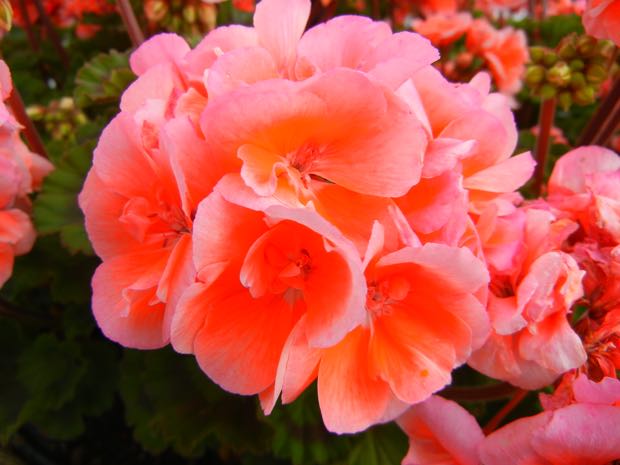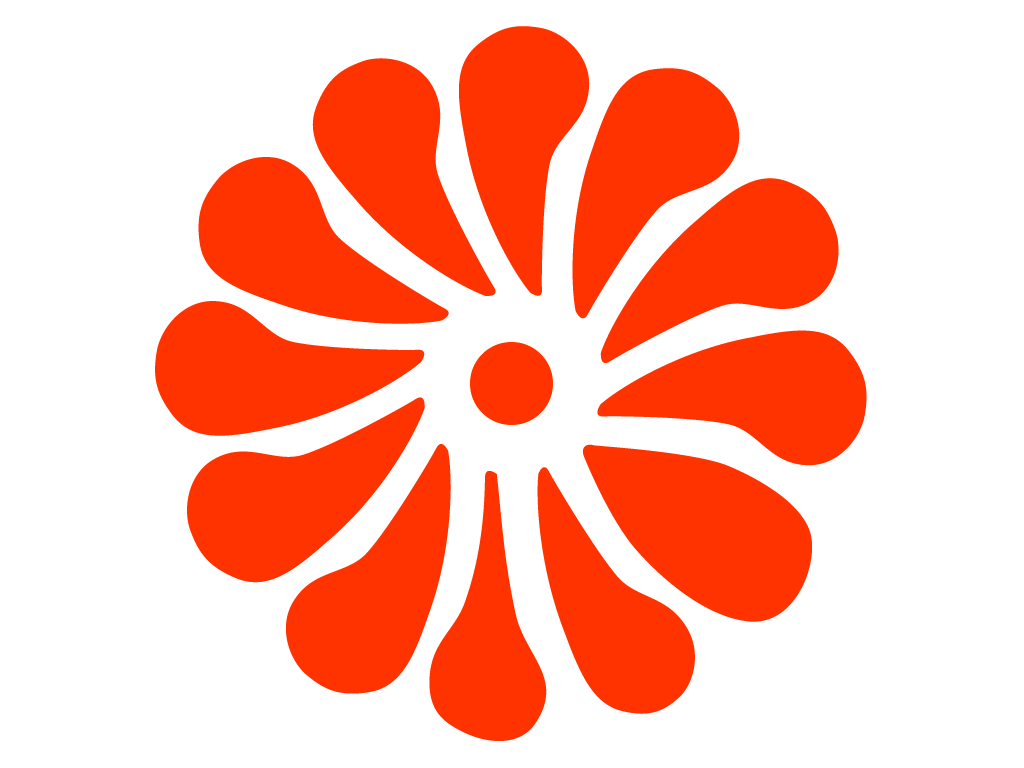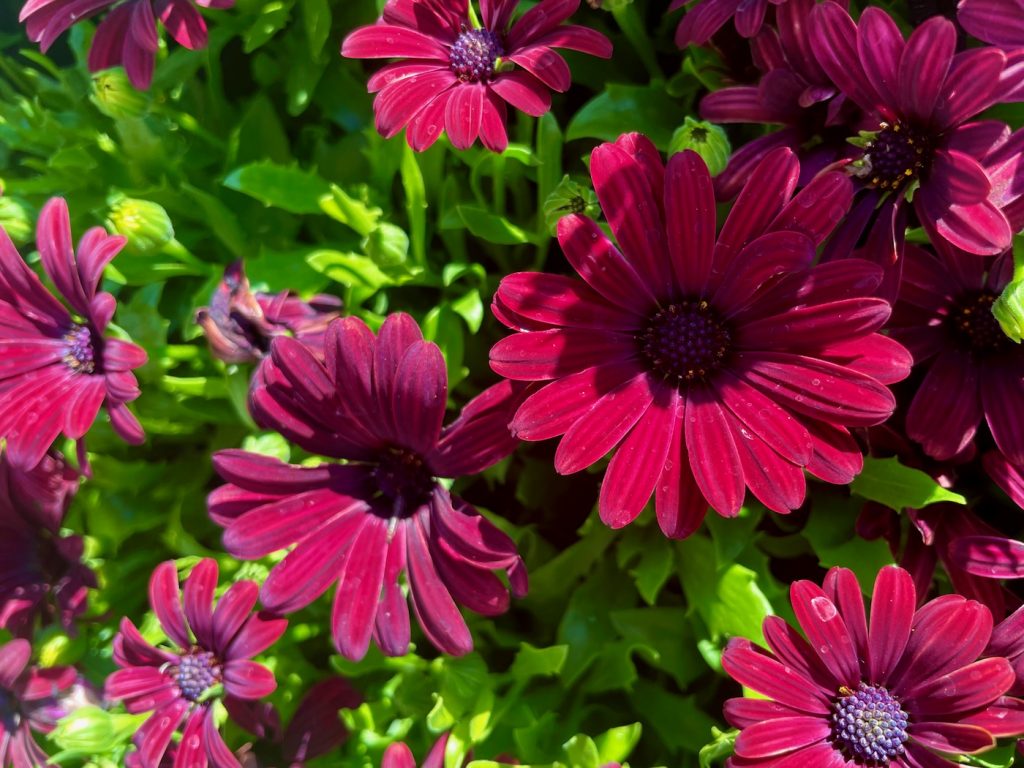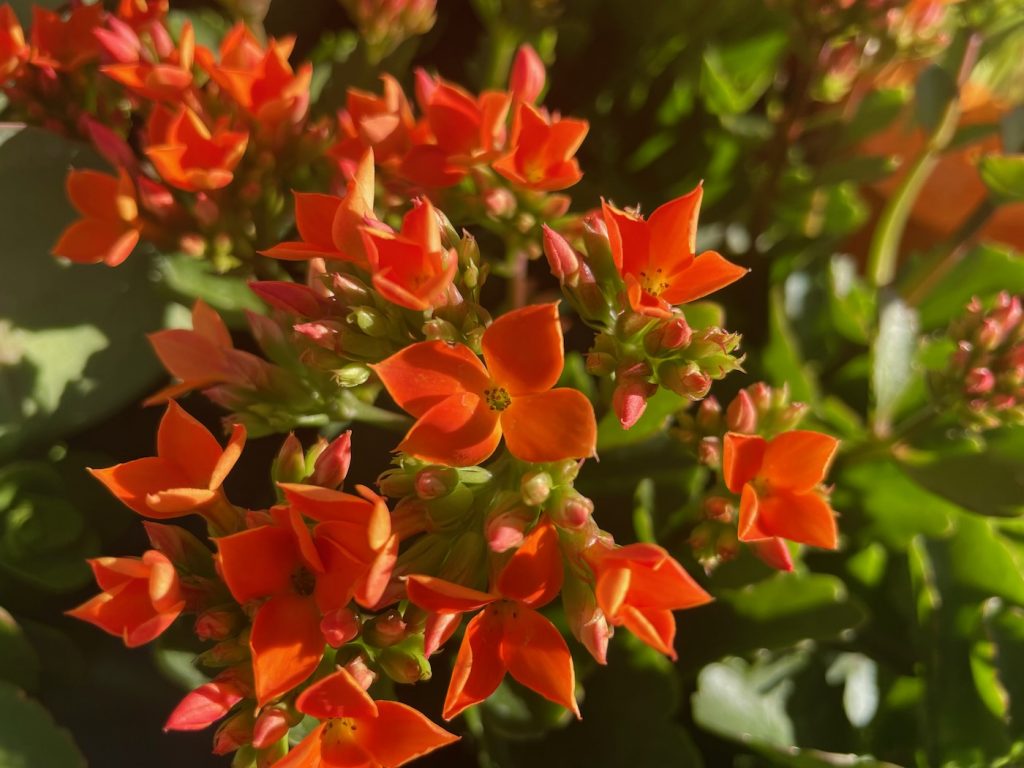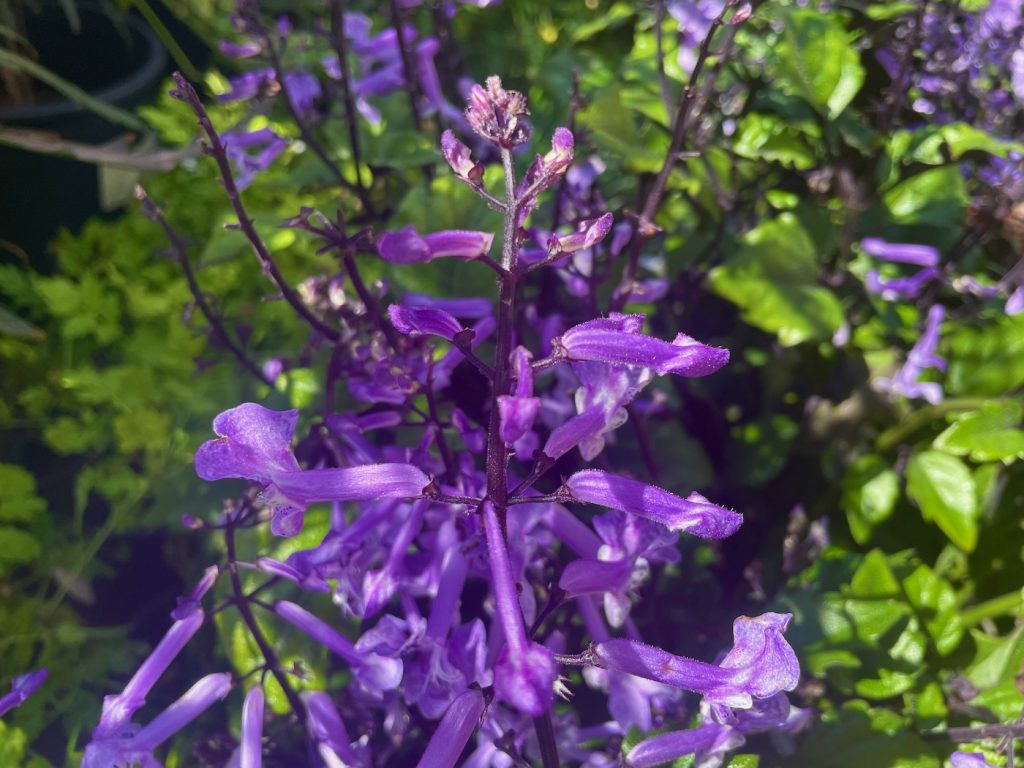Pelargonium hortorum ‘Moonlight Light Salmon’: The Charming Geranium
Background and Characteristics: Pelargonium hortorum ‘Moonlight Light Salmon’ belongs to the Geraniaceae family of plants. This particular variety is an early flowering Pelargonium or Geranium that delights with its extended blooming season. With fragrant dark green foliage, it exhibits traits such as heat tolerance, resistance to deer, and drought tolerance. Pelargonium hortorum ‘Moonlight Light Salmon’ typically reaches a height of approximately 12 inches, making it suitable for both containers and bedding.
Etymology: The genus name, Pelargonium, originates from the Greek word pelargos, meaning “stork,” alluding to the shape of the fruit capsules resembling a stork’s beak. The specific epithet, hortorum, derived from the Latin word hortus, translates to “garden,” highlighting the popularity of Pelargonium hortorum ‘Moonlight Light Salmon’ as a garden plant.
Botany: Pelargonium hortorum ‘Moonlight Light Salmon’ has a spreading habit, it forms a mat of foliage. The dark green leaves exhibit a lobed or toothed margin. Blooming in the spring and summer, the flowers display a delightful salmon-pink color.
Cultivation of Pelargonium hortorum ‘Moonlight Light Salmon’:
Location: Pelargonium hortorum ‘Moonlight Light Salmon’ thrives in full sun or partial shade, although it can tolerate some shade, it may impact flowering. Ensure the soil is well-drained.
Planting: Optimal planting time for Pelargonium hortorum ‘Moonlight Light Salmon’ is in the spring or fall. Dig a hole that is twice as wide and deep as the root ball. Enhance the soil with compost or manure. Place the plant in the hole, backfill with soil, and water thoroughly.
Watering: Regular watering is essential, particularly during the first year after planting. Deeply water once a week, increasing frequency during hot, dry weather. Once established, the plant becomes more drought-tolerant, but occasional thorough soakings during dry spells are appreciated.
Fertilizing: Pelargonium hortorum ‘Moonlight Light Salmon’ requires minimal fertilizer. Applying a light-balanced fertilizer in the spring can aid in promoting flowering.
Pests and Diseases: While generally resistant to pests and diseases, Pelargonium hortorum ‘Moonlight Light Salmon’ can be vulnerable to powdery mildew. This fungal disease manifests as a white, powdery appearance on the leaves. If detected, promptly remove affected leaves and follow the instructions on a fungicide label for treatment.
Deadheading: Although not mandatory, removing spent flowers, known as deadheading, can encourage more blooms. Simply pinch off the faded blooms by hand to maintain the plant’s appearance and stimulate further flowering.
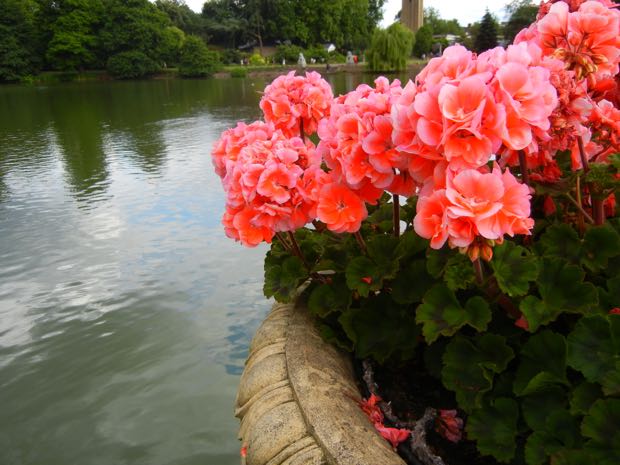
Propagation:
Pelargonium hortorum ‘Moonlight Light Salmon’ can be propagated through seeds or cuttings, with the latter being the more common method. To propagate using cuttings, take a healthy 4-6 inch stem and remove the lower leaves. Dip the cutting’s end in rooting hormone and plant it in a pot filled with moist potting mix. Keep the mix consistently moist and place the cutting in a warm, bright location. Rooting should occur within 2-4 weeks.
Hardiness: This variety is hardy in USDA zones 9 to 11, exhibiting tolerance to winter temperatures down to 25 degrees Fahrenheit.
Pelargonium hortorum ‘Moonlight Light Salmon’ is a captivating geranium cultivar that brings beauty and charm to gardens, containers, and beds. With its delightful salmon-colored flowers, fragrant foliage, and adaptability to various conditions, it is a delightful addition to any landscape.
